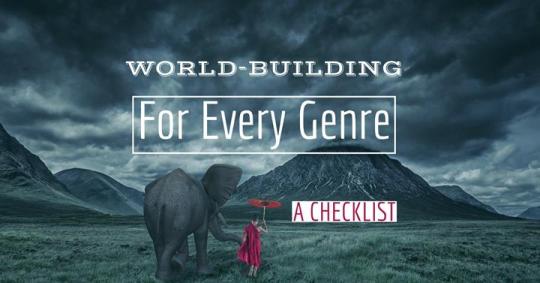A Guide to Writing: Making New Cultures
Cultures, like anything, take time to build. They are what define a people and what make their customs. It’s complicated and integrated into their society. It changes as the people change but the fundamentals often remain unchanged even centuries and millennia into the future.
When creating new worlds, if it’s not set in the world that we know, then the people, while being similar, will be different. What they hold as value will be different. That’s where new cultures come in. countries will be define by something and way out of the way towns will have things that are connected to them. Making new cultures can be a messy process, and I am by no way an expert, but there are at least five things that define a culture and should be present and known.
Customs
Customs are a traditional ways of doing something specify to a set of people or place. If you can’t think of any, think of some traditions that are from where you’re from. For example, in America and many other countries, it’s traditional to put up a tree for the winter holidays.
If the story you’re writing centers around a new culture, then the customs of its people is something that should come into play, even it’s something small. Maybe it’s someone coming of age. Maybe it’s someone passing away. Whatever the case, customs are a personal thing that people share. Be sure to not overlook them.
Arts
Art is a way people share their thoughts that are hard to convey. A way to pass on knowledge and to capture the emotions. Perhaps they capture their history in tapestries and artisans make paintings for a living.
Not only that, body art is an important part of many cultures. Maybe tattoos mean something at a certain age or it’s something like a brand. Perhaps they’re just decorative and meant to look flashy.
Social Institution
A social institution is a group of people who are together for a common purpose such as economy and government. These institutions are a part of the social order of society and they govern behavior and expectations of individuals.
For example, a charities and other nonprofit organizations fall under this category. In this culture you’re writing about, how do they feel about such organizations? Are the promoted? Frowned upon? Not only that, but this includes the education system, cultural groups, how families are defined, health care, market values, politics, and religions.
Each of these things may not hold equal value, or perhaps they all have the same weight. Are the church (in this instance used only to refer to religion) and state separate or together? Is the market, trading goods and services, more important than anything else? What’s the health of the people like and what methods do they use for healing?
Achievements
Achievements, in this case, are defined as things the people have done to better and further themselves. What are some of the things these people have done since they became a people? Was something medical? Was it something that benefited not only them, but the people around the as well?
However, the achievements don’t always have to grand. It could be something small like finding an easier way to make paint or a way to make their weapons. Achievements are things that are well earned and come from something small like inconvenience or big like a fight.
And not all that glitters is gold. An achievement can benefit the majority, but what about everyone else? Is it useful to everyone? Does it need to be? More importantly, what was the reason? It doesn’t always need to be known in detail, but things happen for a reason. As the writer, you, are the very least, need to know.
Behavior Characteristic
We all know that there are somethings that are frowned upon in modern culture. Things like people with breasts going around topless or anyone walking pants-less through the streets. There are certain things people just don’t do because of the consequences and the culture.
What are some of the things that are okay for people to do? What are things that are harmless yet frowned upon? There are things that are widely accepted and if these normal things are challenged then it should be explain if it’s not something carried over from a real culture.
If there are things that are carried over from real cultures, then that’s a tricky ground to walk on if you don’t know anything. Research and asking are an important part of this process if you want to do this. Carrying over form real cultures is fine as long as it’s not a bastardization of it.
Of course, like I said in the beginning of this, I’m not an expert. I don’t really know everything there is to know but this is what I’ve realized when making new cultures myself.








